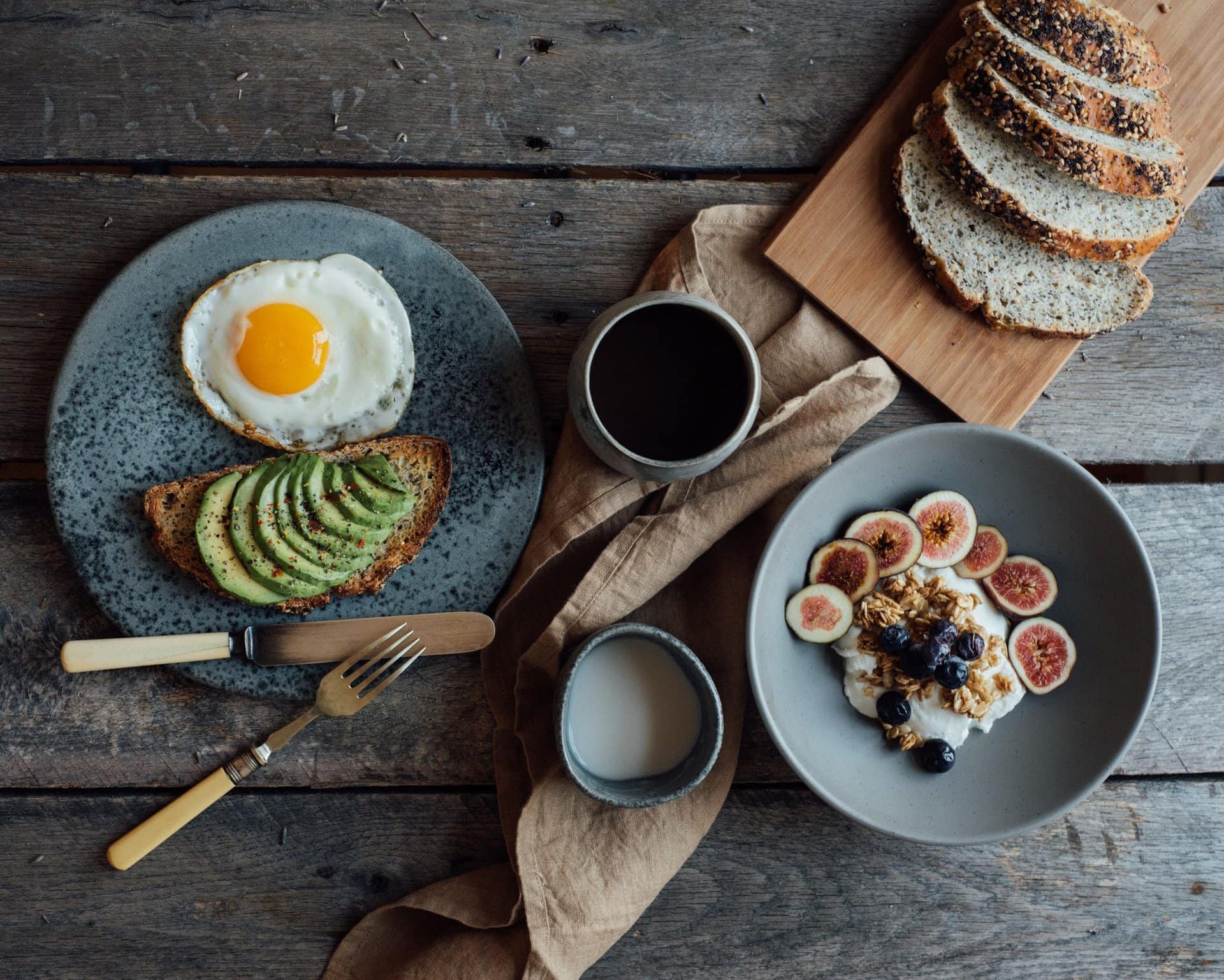A healthy lifestyle and a proper diet are among the essential factors for long life. Besides, you might have heard that breakfast is the most important meal of the day. Is this true? Is breakfast the secret of the Mediterranean countries for such a long life? While we can’t say this, what we do know for a fact is that a healthy breakfast shouldn’t skimp on nutritious foods, but there have been several misconceptions about what it means to break the fast that we’d like to clarify.
What is a healthy breakfast? Is it essential to have breakfast?
- Why is breakfast an important meal?
- What should a proper and healthy breakfast include?
- What types of healthy breakfast can we make?
1. Why is breakfast an important meal?
It may not be true that breakfast is the most important meal of the day, but we know it’s as relevant as the other meals we could have in a day. However, the reality is that not all people consider the optimal way to break their fast based on their needs and their daily physical activity.
When we say that breakfast is the most important meal of the day, we should say it because it sets a precedent for the following ones. And since it can contribute to a good distribution of calories throughout the day and can provide us with the necessary nutrients to improve our health, we should pay more attention to the food we eat during this first meal, no matter when it’s done.
Surely, you have heard many people say that their breakfast is copious, that it only consists of coffee or tea, or that for dietary reasons they skip this meal. So, what is the best way to proceed? The answer is that there can be many ways to break your fast if you choose healthy, nutrient-dense foods.
Even if your goal is to lose weight, you shouldn’t forget that inconsistent meals in diet can lead to weight fluctuations that are detrimental to cardiovascular risk. For this reason, whether you decide to make this meal or not, it’s better to commit to a healthy lifestyle and a diet rich in real food such as that provided by the Mediterranean diet, avoiding ultra-processed foods that are especially frequent at breakfast.

2. What should a proper and healthy breakfast include?
You might know people who daily break their fast with white bread, cereals, juices and dairy products with sugar or industrial pastries. You might even know people that, to lose weight, can resort to foods classified as dietary.
In both cases, this diet consists of the intake of ultra-processed products that should not constitute the bulk of our diet if you want to maintain your health. A healthy and complete breakfast in any diet should be based on real and good processed foods.
So, shouldn’t we skip breakfast?
If we are faithful to the origin of the word (“break the fast”) we could say that there is no diet in which that first meal is not made. However, there are ways of eating, such as intermittent fasting (going 16 hours without eating and eating meals in an 8-hour interval), in which many people decide not to eat what we typically know as breakfast.
If the person controls their eating well, this intermittent fasting can help with weight loss and even with glycaemic control. However, if a person is not used to eating breakfast, by not doing it they could feel some symptoms such as headache, weakness or even anxiety, so to change this habit would take an adaptation period of a couple of weeks.
Again, regardless of the meals that are eaten, what matters (especially if the main concern is losing weight) is maintaining a healthy lifestyle and being faithful to a diet, such as the Mediterranean, which allows you to be stable and eat real products.
What could you drink in the morning to break your fast?
As you probably already know, coffee (if it is naturally roasted) and tea are part of the favourite drinks for those who want an energy boost in the morning, and the truth is that thanks to caffeine they are a great option. Also suitable are other drinks such as vegetable juices.
However, even when they are natural, many people choose to drink fruit juices in the morning, and these only provide a greater number of sugars. Therefore, in the case of wanting to incorporate fruit, it is better to take the whole pieces, or else, make a smoothie in which some vegetables such as spinach are incorporated, which do not change the flavour of it.

What to eat in the morning for breakfast?
Oatmeal flakes and whole wheat rye flakes are ideal choices as morning cereals that can help control type 2 diabetes, obesity, and help improve digestion. On the other hand, whole wheat toasts will always be better since white bread, in which flour devoid of its fibber is used, has faster digestion, so hunger can appear 2 hours later.
Eggs and dairy, especially fermented ones such as yoghurt or kefir (which include probiotics), are great options that can add protein to your breakfast. On the other hand, it is possible to opt for processed meats if they have a high content of raw materials and low additives such as roast ham, turkey breast or Iberian ham.
Finally, as we have mentioned, pieces of fruit are a great option to incorporate in breakfast that easily combines with sources of healthy fat such as avocado, nuts and nut butter (without additives), a category in which we can also include extra virgin olive oil instead of butter since the prior has higher health properties.
3. What types of healthy breakfast can we make?
Salty and sweet, fast and elaborate, we bring you two healthy breakfast recipes that are easy to make depending on your needs in the morning. They can be paired with your favourite drink to break the fast.
A traditional Balearic breakfast
Ingredients (2 servings):
- 2 slices of brown bread
- 1 ramallet tomato
- 2 tsp of extra virgin olive oil
- 6 slices of Mahon cheese
- A handful of Arugula or other green leaves
Method:
Cut the ramallet tomato and rub each half on a slice of brown bread (made with whole wheat flour).
Add about a teaspoon of extra virgin olive oil to each slice, then spread out the Mahon cheese.
Finally, include some arugula leaves or other leafy greens of your choice to complete this quick and healthy breakfast.
A classic baked fruit and oatmeal cake
Ingredients (2 servings):
- 80 g of oats
- 180 ml of milk or vegetable milk
- 1 egg (or flax egg for vegans)
- 1 tsp of baking powder
- 1 tsp of cinnamon
- 1/2 tsp of salt
- 2 Tbsp. extra virgin olive oil
- 4 Tbsp. date paste
- 1 large banana sliced
- 160 g of blueberries
Method:
Preheat the oven to 220 degrees C. and add to a mixing bowl all the dry ingredients (oats, baking powder, cinnamon and salt) and mix.
Add all the wet ingredients to a separate mixing bowl (your milk of choice, egg, extra virgin olive oil, agave paste) and mix.
Then, blend the content of both bowls, add almost all the blueberries to this mixture and stir some more.
Follow by lining your baking tray with baking paper and then add the sliced banana to the bottom.
Pour the mixture on top and scatter the blueberries you left aside on top.
Place the tray into the oven and bake for 25- 30 minutes, depending on the size of your dish.
The bake will be ready as the top becomes lightly golden brown and then centre spongy.
For an extra source of protein, you can serve one portion with a scoop of yoghurt.
Susbcribe to our newsletter










